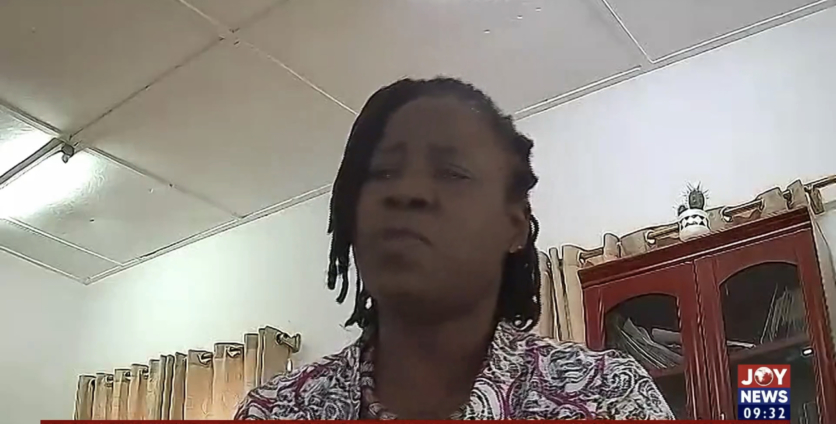The Head of the University of Ghana's Department of Communication Studies has charged Ghanaians not to shy away from expressing their views on national issues.
Dr Abena Animwaa Yeboah-Banin said there is an opportunity for everyone to be heard as enshrined in the 1992 Constitution.
According to her, everyone has a right to be heard and also to have the right to reply.
Speaking on Joy Change-Speakers Series V on Saturday, July 8, Dr Abena Animwaa Yeboah-Banin stressed this will allow for the collective development of the country.
She stated that, due to this opportunity, there are various views and opinions to be sampled for the betterment of the country.
“Again when we have plural media, there is also an opportunity for the right of other voices to speak and to be heard and to also have the right of reply if they have been slighted.”
“But in such a media environment, the beauty of it I think is the opportunity it presents in our walk towards development for different ideas to be sampled from all corners of this country in a space of plural media, there is an opportunity for your voice to be heard as much as the opportunity for the most intelligent and the worse off to be heard and we all then get the opportunity to collaborate and to contribute to what we all want for Ghana.”
She was speaking on the State of the Ghanaian Media Report 2023 released by the Department of Communication Studies.
The Report, among other things, said the Ghanaian media is not financially viable.
According to the report, “the media industry is too heavily plagued by saturation, the cost of doing business in Ghana, dwindling advertising budgets [including capital fight onto social media platforms], the after-effects of the COVID-19 pandemic and fast-evolving technological changes to be considered financially healthy.”
The study noted that the financial health of the local media is patchy, at best.
It added that although there are clear signs of healthy indicators of financial potential, there are equally pressing challenges to viability.
“Factors situated within the structure of the local media scene, the COVID-19 pandemic, the state of the local economy and the fast pace of technological evolutions both hurt the financial health of the media in Ghana.”
It went on to state that while media strive to be financially viable, the efforts are also countered by the cost of doing business in Ghana’s post-COVID-19 economy.
“Like all businesses in the country, media organisations are finding themselves at the mercy of forex rate-induced rising fuel, utility and retooling costs which have become a constant drain on incomes. As these and other costs increase, the capacity for media to adequately resource and remunerate employees to engender professional practice reduces.
“The high cost of doing business also has implications for content diversity. Indeed, as we find, it costs more to generate local content than to import and do voice translation sound inserts.
"This explains the increasing levels of imported Asian and Southern American telenovelas which are gradually weaning local audience tastes off local films and drama. The long-term implications for financial viability are dire.”
Latest Stories
-
KNUST, University of Rwanda share experiences in implementation of Mastercard Foundation Scholars Program
46 mins -
Top 10 most visited tourist sites in Ghana 2023
48 mins -
Cecilia Dapaah case: My government will reopen investigation into alleged acts of corruption – Mahama
53 mins -
GRA boss charges customs officers to be professional ahead of 2024 general elections
1 hour -
NPP thanks stakeholders for successful Ejisu by-election
1 hour -
Bawumia promises to involve chiefs in licensing miners if elected President
1 hour -
Koda should have visited the pastor to avert the prophecy – Ajagurajah
2 hours -
Emotional support alligator taken and released in swamp
2 hours -
A mate is a mate, Bawumia can’t be in the driver’s seat – NDC Communicator
2 hours -
Over 400 million Google accounts have used passkeys, but our passwordless future remains elusive
2 hours -
Kwame Nkrumah Memorial Park surpasses Aburi Gardens as most visited site in 2023 – GTA
2 hours -
Third IFC EDGE Students Design Competition opens in Ghana
2 hours -
Baidoo: Disgraceful maltreatment of the Black Princesses must stop
2 hours -
Telecel Ghana commits to community collaboration during Western Region tour
2 hours -
Chieftaincy Ministry shouldn’t have written the letter – Atuguba on Akufo-Addo-chiefs saga
2 hours

